Dogs are considered “man’s best friend” for good reason. They provide companionship, loyalty, and unconditional love. For families with children, choosing the right dog breed is essential to ensure a harmonious and safe environment. In this article, we’ll explore the most popular dog breeds for kids, helping you make an informed decision for your family.
The Importance of Choosing the Right Dog Breed for Kids
Choosing the popular dog breeds for kids is very important. It can help keep your kids safe and happy. Different dog breeds have different personalities and energy levels. So, you need to find one that suits your family’s lifestyle.
When you bring a dog into your family, it’s like adding a new member to your household. So, it would be best to consider how this new furry friend will fit into your daily life. It’s not just about how the dog looks or how popular the breed is. It’s about finding a dog that matches your family’s activity level, where you live, and, most importantly, what your children are like and what they need.
Bichon Frise: A Playful Companion for Kids
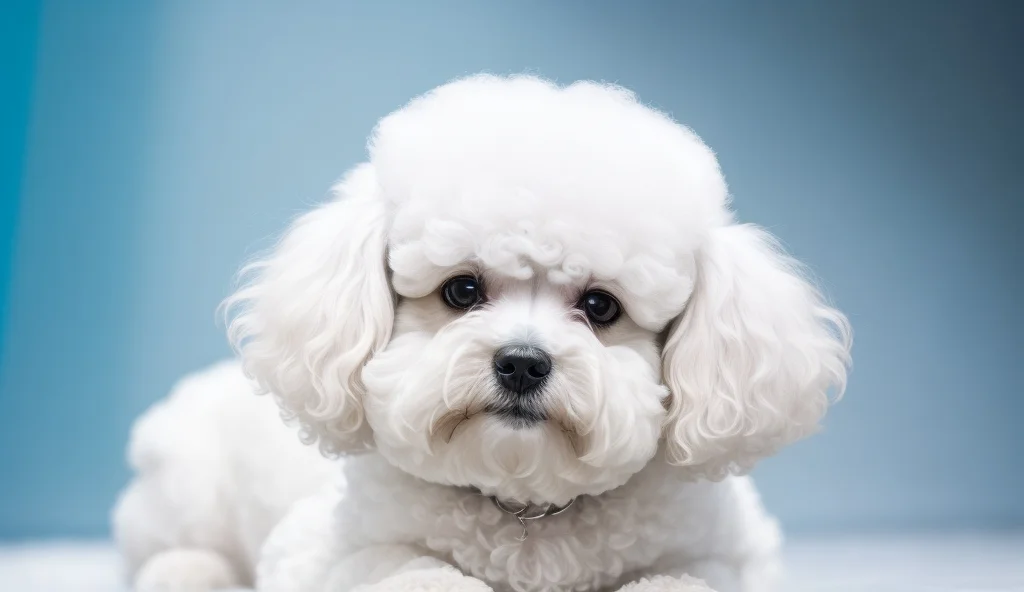
Bichon Frise
Golden Retriever: The Ultimate Family Dog
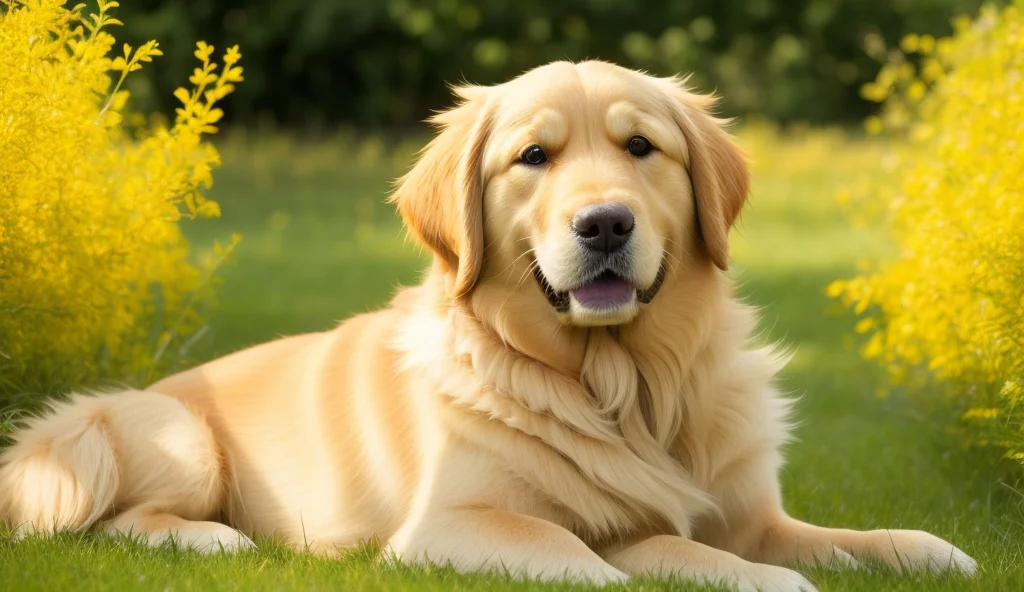
Golden Retriever: The Ultimate Family Dog
A lot of people think that golden retrievers are the best dogs for families. They are gentle, patient, and intelligent, making them an excellent choice for households with children. Their friendly disposition and willingness to please make them a popular choice for families of all sizes.
Golden Retrievers are famous for being patient and gentle, and that’s why they’re known as the ultimate family dog. They are easy to train and always want to make their families happy. So, they’re a great choice for families who want a loyal and loving friend for their kids.
Beagle: A Small Bundle of Energy

Beagle: A Small Bundle of Energy
Beagles are small, energetic dogs that are the best dog breeds for families with kids. Their playful nature and love for outdoor activities make them a great match for children who enjoy playtime in the yard or at the park. Beagles are also known for their loyalty and affectionate personality.
Beagles are the embodiment of fun and energy. If your kids love to be outdoors and engage in active play, a Beagle will be their ideal playmate. These dogs have a zest for life that’s contagious, making them perfect for children who enjoy an active lifestyle. Their loyalty and affectionate nature make them an excellent addition to your family.
Border Collie: The Intelligent and Energetic Choice
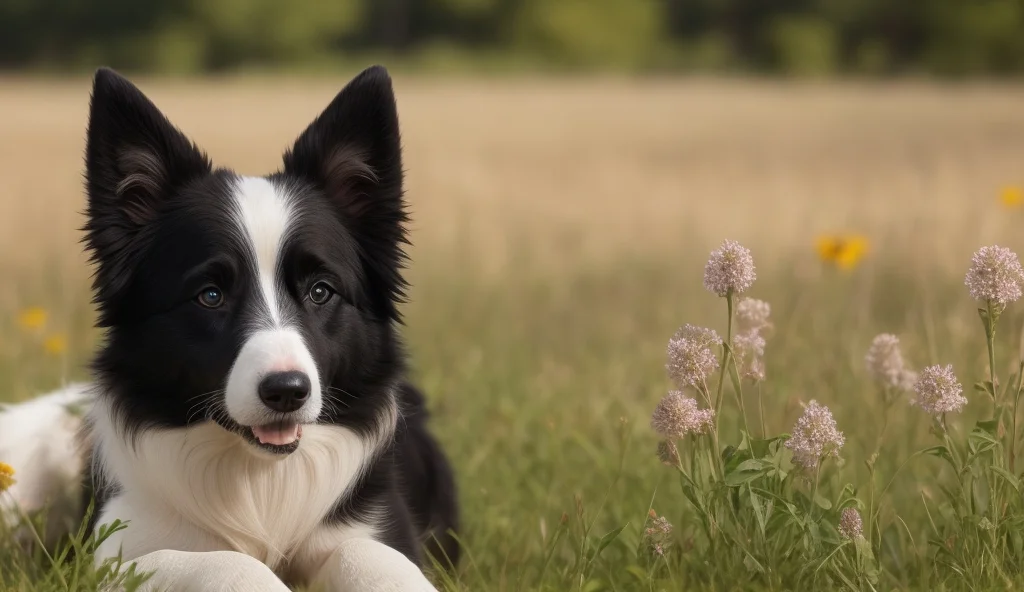
Border Collie: The Intelligent and Energetic Choice
If you want a smart and energetic dog, pick the Border Collie. They need lots of exercise and things to consider, but they’re super loyal and can become great friends with kids. These dogs are awesome for active families.
Border Collies are famous for being smart and quick. They love to learn new things and take on challenges, which is perfect for families who like playing and doing things with their pets. Even though they have lots of energy, they can use it for fun and games, so they’re great friends for active and curious kids.
Poodle: A Hypoallergenic Option
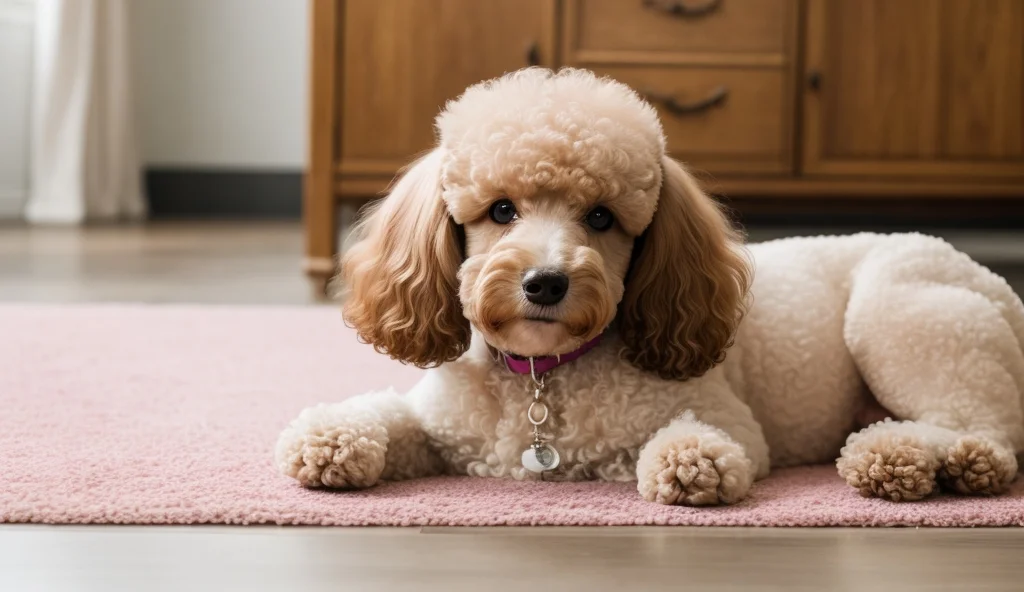
Poodle: A Hypoallergenic Option
Poodles come in different sizes, making them versatile for families. Their hypoallergenic coat is a significant advantage for households with allergy-prone members. Poodles are known for their intelligence and adaptability, making them easy to train and a great fit for kids and families.
They are not only known for their hypoallergenic coats but also for their intelligence. If you have family members with allergies, a Poodle can be a perfect choice. They are highly trainable, making them an excellent companion for kids who want to participate in teaching tricks and commands to their furry friends.
Shih Tzu: A Gentle and Loving Breed
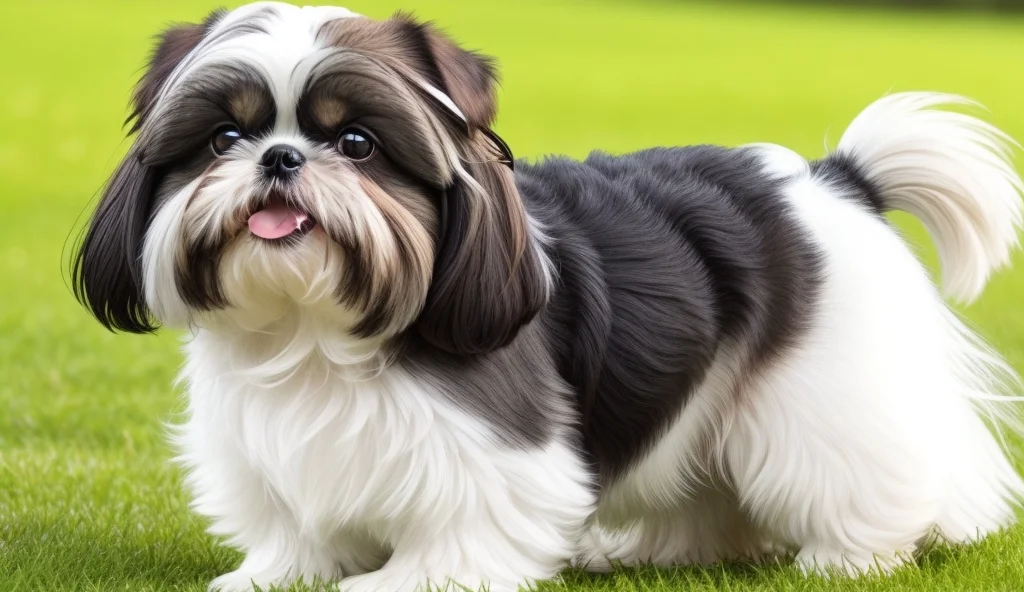
Shih Tzus are renowned for having loving, gentle dispositions. They are excellent companions for children who need a cuddly and affectionate friend. While they may have longer hair, regular grooming can keep them looking their best. Shih Tzus is well-suited for families looking for a smaller breed with a calm disposition.
They are like a warm and loving hug that never ends. Their gentle and affectionate nature makes them great companions for children who seek comfort and cuddles. Although they have long, flowing coats, regular grooming can keep them looking their best. These dogs are a gentle and loving presence in any family.
Factors to Consider When Choosing a Best Dog Breed for Kids
When picking the right popular dog breeds for kids, think about things like size, personality, how much exercise it needs, and any allergies in your family. Ensure the dog’s traits fit your family’s way of life for a happy and successful partnership.
Here are a few key considerations when selecting the right dog breed for your kids:
Size
The dog’s size is a crucial factor to consider when bringing a new pet into a household with children. It’s essential to select a dog that is an appropriate size for your living space and, more importantly, safe for your kids. Smaller breeds are often a popular choice for families, but larger breeds can also be suitable if they are well-trained and have a gentle disposition.
Temperament
The temperament of the dog is paramount, mainly when children are involved. Look for breeds known for being patient, gentle, and tolerant. Some breeds are naturally more inclined to get along with kids and are less likely to exhibit aggression or nervousness. It’s essential to choose a breed with a temperament that aligns with your family’s needs and lifestyle.
Energy Level
Consider the energy level of the dog and whether it matches your family’s activity level. Some breeds are highly energetic and require a lot of exercise and playtime. If your family enjoys outdoor activities and regular exercise, a more active breed might be a great fit. However, if your family prefers a calmer lifestyle, a less energetic breed may be a better choice.
Allergies
Allergies can be a concern for some family members. If anyone in your household has allergies to pet dander, consider choosing a hypoallergenic breed. Hypoallergenic dogs produce fewer allergens, making them a more comfortable choice for allergy-prone individuals.
Lifespan
When choosing popular dog breeds for kids, remember that dogs have varying lifespans. Some breeds live longer than others. It’s essential to consider the long-term commitment of bringing a dog into your family. Dogs often become an integral part of a child’s life as they grow up, so select a breed that will be a beloved companion throughout your children’s formative years.
Family Dynamics
Assess your family dynamics and how a dog will fit into them. Are you a busy family with numerous activities, or do you prefer quiet time at home? Do you have other pets, and how will a new dog interact with them? Understanding your family’s unique needs and dynamics will help you choose a dog that complements your lifestyle.
Age of Children
Consider the age of your children when selecting a dog. Some dog types are suitable for families with little kids. Other dogs are best for families with big kids who can handle active, giant dogs. Pup may be an excellent choice for families with young children, as they can grow up together, forming a strong bond.
Grooming and Maintenance
Certain dog breeds require more grooming and maintenance than others. Long-haired breeds, for instance, may need regular grooming to keep their coats in good condition. Consider how much time and effort you will invest in grooming and maintaining your dog’s appearance.
In conclusion, picking dog breeds for kids means looking at size, personality, energy, allergies, trainability, lifespan, family, kids’ ages, and grooming. Consider these things to make an intelligent choice for a happy and safe dog-child bond.
How to Introduce a Dog to Children
Introducing a dog to children should be done with care. Teach your kids to interact with the new family member, emphasizing respect and gentleness. Supervise their initial interactions to ensure a positive start to their relationship.
A new dog is joyful, but bringing one into the family is a delicate procedure. It’s essential to create a positive experience for both your kids and the dog. The following actions will guarantee a seamless introduction:
- Supervision: Always supervise the first interactions between your dog and children to prevent accidental rough handling.
- Teach Respect: Teach your children to respect the dog’s boundaries and signals. Show them how to approach the dog calmly and gently.
- Positive Reinforcement: Encourage positive interactions with treats and praise to build trust between your children and the dog.
Training and Socialization
Proper training and socialization are essential to a well-behaved family dog. Enroll your dog in obedience classes and expose them to various social situations to ensure they are comfortable and well-adjusted around children and other animals.
Training and socialization are vital components of raising a well-adjusted family dog. Consider these tips:
- Obedience Classes: Enroll your dog in obedience classes to ensure they respond to commands and behave well around your children.
- Social Exposure: Introduce your dog to various social situations, including encounters with other dogs, people, and children.
- Positive Reinforcement: Use positive reinforcement techniques to reward good behavior and build a strong bond with your dog.
Common Myths About Dogs and Kids
Dispelling common myths about dogs and kids can help families make more informed decisions. Addressing misconceptions about breeds, aggression, and child-dog interactions can lead to safer and happier homes.
Let’s address some common myths about dogs and kids:
- All Small Dogs Are Safe: While smaller breeds can be great family pets for kids, it’s essential to consider their temperament and energy levels.
- Dogs and Babies Don’t Mix: With proper supervision and training, many dogs can adapt well to the arrival of a new baby.
- Certain Breeds Are Inherently Aggressive: Breed stereotypes are often inaccurate. Each dog is an individual, and their behavior depends on upbringing and training.
- Dogs Don’t Need Training: All dogs benefit from training to ensure they are well-behaved and safe around children.
Conclusion
Deciding on the popular dog breeds for kids is an extensive choice that can make your family happier for a long time. The breeds we talked about all have their special qualities, but they all like kids and families. To have a good relationship between dogs and kids, you need to be responsible, do training, and, most of all, show love.
FAQs
Q. Are these breeds suitable for families with young children?
A. Yes, these breeds are generally great for families with kids, but supervision and training are essential.
Q. What is the best way to introduce a dog to a child?
A. Start with gentle, supervised interactions and teach your child to respect the dog’s boundaries.
Q. Do any of these breeds require special grooming?
A. Yes, breeds like the Poodle and Shih Tzu may require regular grooming due to their coat types.
Q. Are there any breeds to avoid with children?
A. While every dog is an individual, breeds with aggressive tendencies should be cautiously approached.
Q. What age is suitable for a child to have a dog?
A. It depends on the child’s maturity level and the family’s ability to care for the dog. Generally, children over 6 may be more responsible pet owners.


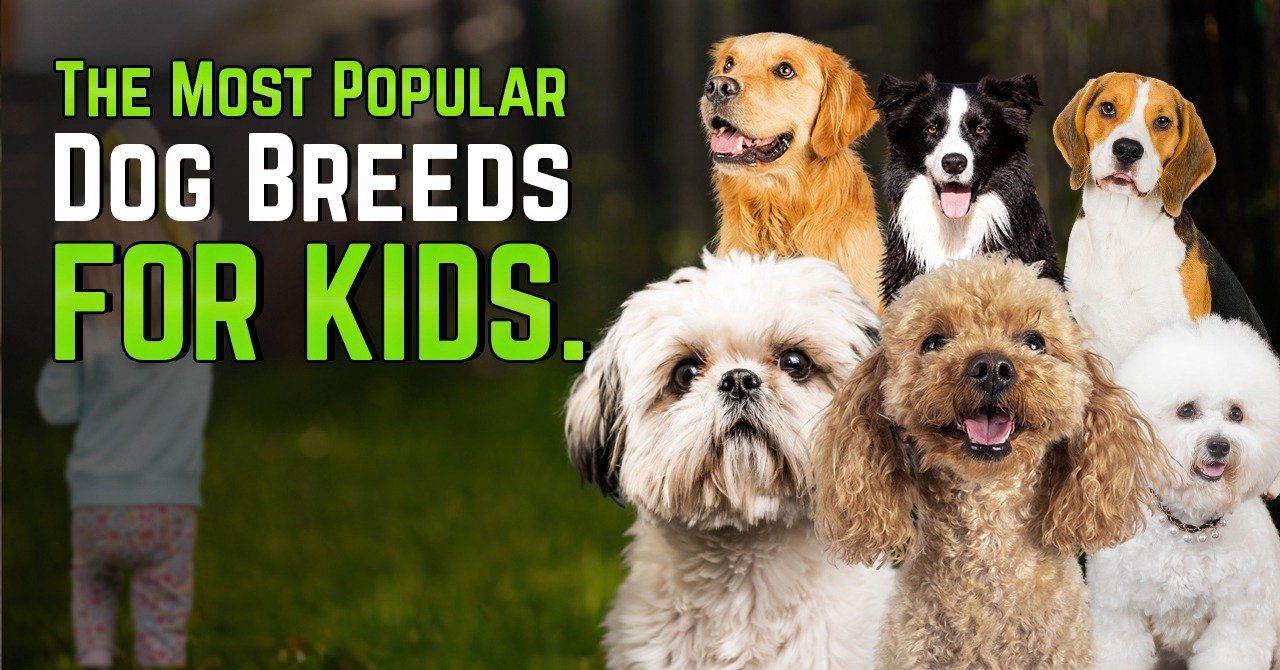
What turns out?
Choosing the right dog breed for kids is a big decision that can bring joy to your family for years. The breeds we discussed all have unique qualities, and they are all friendly towards children and families. To foster a positive relationship between dogs and kids, it’s essential to be responsible, provide training, and, above all, show love.